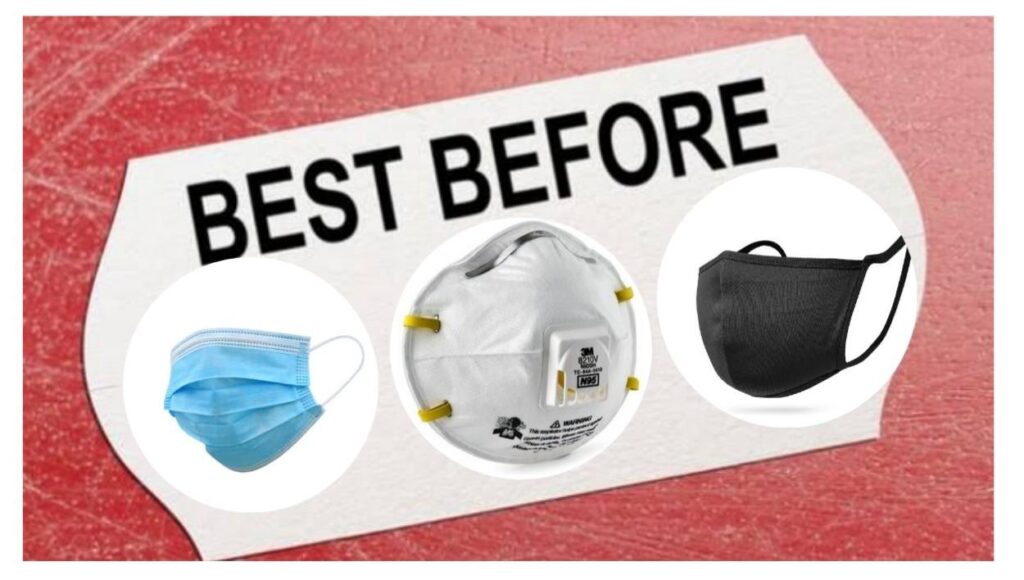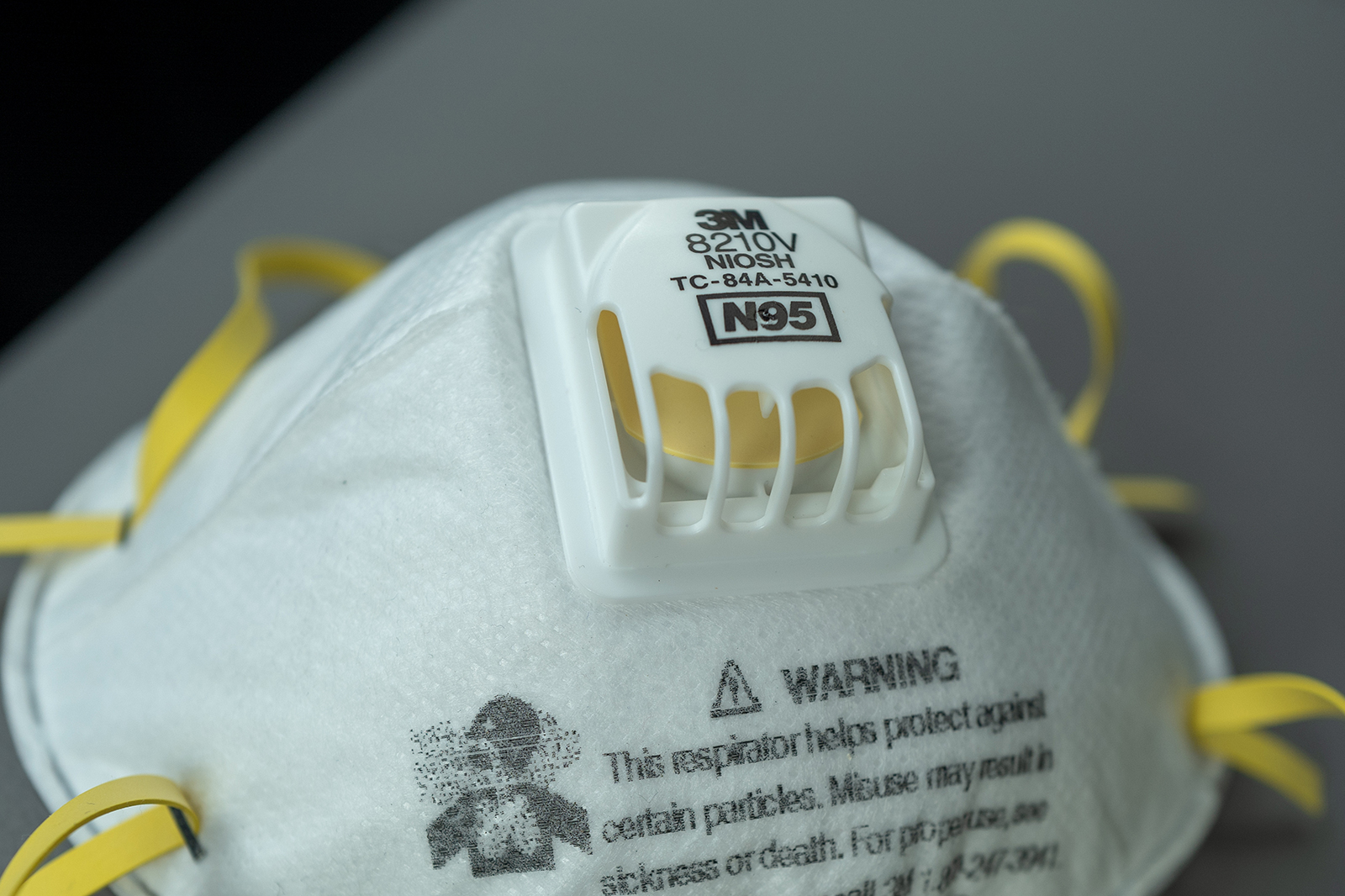Can Face Masks Expire? Everything You Need to Know
Face masks have become a familiar part of our lives, especially since the pandemic turned them into everyday essentials. But if you’ve ever dug through a drawer and found an old pack of masks, you might’ve wondered: Can face masks expire? It’s a simple question, but the answer isn’t as straightforward as you might think. Expiration dates are printed on the box, sure, but what do they really mean? Are those dusty masks still safe to use, or should you toss them out?
In this deep dive, we’re going to unpack everything about face mask expiration—whether it’s N95s, surgical masks, or cloth ones. We’ll look at what science says, how storage affects them, and what you can do to make the most of your stash. Plus, we’ll explore some fresh angles that other articles often skip, like how to test an old mask yourself and what expiration means for the planet. Let’s get started!
What Does “Expiration” Mean for Face Masks?
When you see an expiration date on a face mask package—say, “03/2025”—it’s easy to assume it’s like milk going bad. But face masks don’t spoil in the same way. That date isn’t about the mask suddenly becoming useless; it’s more about quality control and manufacturer guarantees.
The Basics of Expiration Dates
For disposable masks like N95s and surgical masks, the expiration date is usually tied to how long the materials are expected to hold up under ideal conditions. Manufacturers like 3M set these dates (often 3-5 years from production) based on testing. They’re promising that, up to that point, the mask will filter particles, fit properly, and stay intact—if stored correctly.
But here’s the kicker: expiration doesn’t mean the mask stops working the day after. Studies, including ones from the National Institute for Occupational Safety and Health (NIOSH), suggest many masks keep their filtration power well beyond that date. So why the label? It’s partly about liability—companies want to cover their bases—and partly about ensuring peak performance for critical uses, like in hospitals.
Cloth Masks: A Different Story
Cloth masks don’t come with expiration dates because they’re reusable. Their “lifespan” depends on how often you wash them and how the fabric holds up. Over time, washing can wear out the fibers, making them less effective at blocking tiny particles. Think of it like an old T-shirt: after 50 washes, it’s still a shirt, but it’s not as sturdy as it once was.
Why It Matters to You
Understanding expiration helps you decide whether that old box in your closet is still good—or if it’s time to rethink your stockpile. Let’s break it down further by mask type.
Do Different Types of Face Masks Expire Differently?
Not all masks are created equal, and their expiration depends on what they’re made of and how they’re designed. Here’s a closer look at the big three: N95s, surgical masks, and cloth masks.
N95 Masks: The Gold Standard
N95s are the heavyweights of filtration, blocking at least 95% of tiny particles (0.3 microns or bigger). They’re made of synthetic fibers, often polypropylene, layered to trap dust, viruses, and more. The expiration date—usually 5 years—reflects how long the straps, nose piece, and filter should stay reliable.
- What Science Says: A study by researchers at the University of North Carolina and the EPA tested N95s that were 10+ years past their expiration. Guess what? Even 16-year-old masks still filtered well above 95%. The catch? Straps sometimes got brittle, and fit could weaken if stored poorly.
- Practical Tip: Check the straps and nose clip. If they stretch or snap easily, the mask won’t seal properly, and that’s where protection fails.
Surgical Masks: Disposable but Durable?
These blue paper-like masks are simpler, designed to block droplets rather than tiny aerosols. Their expiration is often 2-5 years, based on the paper layer and elastic ear loops.
- Reality Check: The filtration might hold up past the date, but the ear loops are the weak link. If they’re crumbly or loose, the mask won’t stay on your face right.
- Fun Fact: During the pandemic, hospitals used “expired” surgical masks when supplies ran low, and studies showed they still worked for basic protection.
Cloth Masks: No Date, No Problem?
Since they’re washable, cloth masks don’t expire in the traditional sense. But after 30-50 washes, the fabric can thin out, letting more particles through.
- Quick Test: Hold your cloth mask up to a light. If you see lots of tiny holes or thinning spots, it’s time to retire it.
- Upgrade Idea: Add a filter layer (like a coffee filter) to extend its life.
Key Takeaway
Expiration varies by mask type, but it’s less about the filter failing and more about the physical parts—like straps or fabric—wearing out. Next, let’s see what makes a mask “go bad.”
What Makes a Face Mask “Expire”?
Expiration isn’t magic; it’s about degradation. Here’s what can turn a perfectly good mask into a dud—and how to spot it.
Material Breakdown
- Filters: For N95s and surgical masks, the filtration layers are synthetic. Over time, heat, humidity, or UV light can weaken them—not enough to ruin them fast, but enough to matter after years.
- Straps: Elastic degrades with age, especially in hot or damp conditions. Brittle straps mean a bad fit, and fit is everything for protection.
- Adhesives: The glue holding nose pieces or layers together can dry out, causing parts to peel or fall apart.
Storage Conditions
How you store masks matters more than you’d think. A study from the CDC found that masks kept in cool, dry, dark places lasted longer than those in steamy bathrooms or sunny car dashboards.
- ✔️ Do: Store masks in their original box or a sealed bag, away from sunlight and moisture.
- ❌ Don’t: Leave them in a hot car or damp basement—heat and humidity speed up breakdown.
Contamination
Old masks don’t “grow” germs, but if they’ve been sitting in a dusty or moldy spot, they could pick up unwanted hitchhikers. A funky smell or visible spots? Toss it.
Interactive Checklist: Is Your Mask Still Good?
Here’s a quick way to check:
- ✔️ Straps stretch without snapping
- ✔️ No rips, holes, or thinning fabric
- ✔️ No weird smells or stains
- ❌ Any “no” answers? Time to replace it!
Can You Use an Expired Face Mask Safely?
This is the million-dollar question: Is it okay to use that mask past its date? Let’s weigh the risks and benefits with some real-world insight.
What the Research Says
NIOSH and other studies agree: most N95s and surgical masks don’t lose filtration power right after expiration. A 2021 study tested 11-year-expired N95s and found they still met the 95% standard. The bigger issue? Fit. If the mask doesn’t seal because of worn-out straps, it’s less effective.
When It’s Fine to Use Expired Masks
- Low-Risk Settings: Grabbing groceries or walking outside? An expired mask with a good fit is likely fine.
- Emergency Backup: If you’re out of fresh masks during a shortage, expired ones beat nothing.
When to Say No
- High-Risk Situations: In a hospital or crowded indoor space with poor ventilation, don’t gamble—use a fresh, unexpired mask.
- Visible Damage: If it’s torn, smelly, or falling apart, it’s trash, expired or not.
DIY Test: The Breath Check
Want to test an old mask? Try this:
- Put it on and adjust the straps and nose piece.
- Breathe out hard. Feel air leaking around the edges? Bad seal.
- Hold a lit candle 6 inches away and blow. If it flickers, the mask isn’t filtering well.

How to Extend the Life of Your Face Masks
Tossing out masks feels wasteful, especially if they’re still usable. Here’s how to stretch their lifespan without compromising safety.
Storage Hacks
- Cool and Dry: Keep masks in a sealed container (like a plastic bin) in a closet, not a humid garage.
- Avoid Crushing: Stack them flat, not squished under heavy stuff, to protect the shape.
Rotation Trick
For N95s, don’t wear the same one daily. Use a few in rotation, letting each “rest” for 72 hours between uses. This gives any lingering particles time to die off naturally.
Cloth Mask Care
- Wash Smart: Use mild detergent and air-dry—hot dryers can shrink or weaken fabric.
- Reinforce: Sew in an extra layer if it’s getting thin.
Bonus Tip: UV Light?
Some folks wonder about sanitizing masks with UV light. Small studies suggest it can kill germs without hurting filtration, but it’s not proven for home use yet. Stick to simple methods for now.
The Environmental Angle: What Happens to Expired Masks?
Here’s something you won’t find in most articles: expiration ties into waste. Billions of disposable masks end up in landfills yearly, and “expired” ones add to the pile. Let’s dig into this.
The Waste Problem
A 2022 estimate pegged pandemic mask waste at 1.5 million tons. Expired masks—still functional but discarded—make this worse. Plastic-based N95s and surgical masks take decades to break down, leaching microplastics into soil and water.
What You Can Do
- Donate: Some charities accept unopened, expired masks for low-risk use (check locally).
- Repurpose: Use old masks as packing material or craft supplies if they’re clean.
- Push for Clarity: Manufacturers could extend shelf-life estimates with more data, cutting waste.
Quick Poll: What Do You Think?
What should companies do about mask waste?
- A) Extend expiration dates with better testing
- B) Make biodegradable masks
- C) Both!
Drop your vote in the comments—we’re curious!
Busting Myths About Face Mask Expiration
There’s a lot of confusion out there. Let’s clear up some common myths with facts.
Myth 1: Expired Masks Are Useless
Truth: Filtration often holds up past the date. It’s the fit and materials that might fail, not the filter itself.
Myth 2: Washing N95s Extends Their Life
Truth: Water damages the electrostatic charge in N95 filters, dropping their effectiveness. Stick to rotation, not washing.
Myth 3: Expiration Dates Are Just a Scam
Truth: They’re based on real shelf-life tests, but those tests assume worst-case storage. Proper care can stretch usability.

Real-Life Scenarios: What Would You Do?
Let’s put this knowledge to work with some everyday examples.
Scenario 1: The Garage Find
You find a box of N95s from 2020 in your garage, expired last year. The straps feel okay, and they look clean. Verdict: Test the fit. If they seal well, use them for quick errands—not a packed concert.
Scenario 2: Faded Cloth Mask
Your favorite cloth mask is faded after 40 washes and feels thin. Verdict: Check it against light. If it’s holey, retire it or add a filter layer.
Interactive Quiz: Test Your Skills!
- An N95’s straps snap. Can you still use it?
- A) Yes, if you tie them
- B) No, fit matters most
- A surgical mask smells musty. What’s your move?
- A) Air it out
- B) Toss it
(Answers: 1-B, 2-B—share your score below!)
The Future of Face Masks: What’s Next?
Expiration isn’t static—new research could change how we see it. Scientists are testing longer shelf lives, and some companies are exploring biodegradable masks. Imagine a world where masks last 10 years or dissolve harmlessly after use. That’s not sci-fi; it’s in the works.
Original Insight: A Mini Calculation
If a typical N95 lasts 5 years but could safely stretch to 10 with better storage, we’d halve waste from expired stock. For 1 million masks, that’s 500,000 fewer trashed—enough to fill a small landfill!
Final Thoughts: Making Smart Choices
So, can face masks expire? Yes, but it’s not a hard stop. Disposable masks like N95s and surgical ones have dates tied to material durability, while cloth masks “expire” through wear. Science shows filtration often outlasts the label, but fit and storage are the real game-changers. With a little know-how, you can use old masks wisely, cut waste, and stay protected.
Next time you find an old mask, don’t just chuck it—check it. You might be surprised how much life it’s still got. Got questions or a stash you’re unsure about? Tell us below—we’d love to hear your story!





No comment